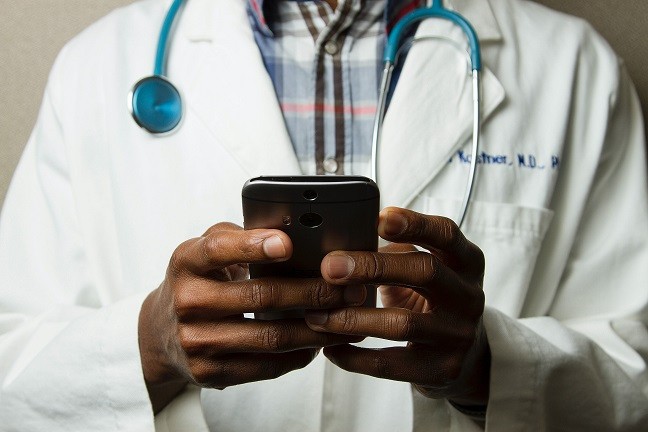what is digital health?

Is it the recording of data in IT systems? The standardization and coding of clinical concepts? The interoperability of the various healthcare systems? Access to healthcare information from a single medical record. Patient access to health services from the home? Ubiquitous patient monitoring? The use of artificial intelligence for diagnosis purposes? Digital health is all these and more. It is the strategy that will make Spain’s healthcare more efficient and streamlined, allowing clinicians to treat patients more personally and with higher quality. It will also involve a change in patients’ relationship with the health system and an improvement in the welfare of patients and the public at large.
Digital Health is closely bound up with other technologies like 5G, Artificial Intelligence, Big Data, Privacy, Cybersecurity, Telemedicine, Blockchain, RPA, Microservices, Cloud-hosted services, Robotics, IOT, etc. The application of this whole quiver of options helps to spread the concept of a health center well beyond the confines of the actual building, affording such features as multidisciplinary healthcare, patient participation, preventive medicine, precise and personalized medicine, plus a safer and more sustainable health system.
It is important to bear in mind here that the pathway towards the digital transformation is not single and unique. Managers should not waste time looking for a silver bullet. A more adaptive, dynamic and operational strategy will speed up the necessary culture change in order to achieve the digital transformation, which is now advancing towards a new, more transparent and flexible healthcare concept.
We can therefore safely claim that the biggest stumbling block to the digital transformation of healthcare is not technology. The technology has been in place for some time now, recording tried and tested results. No, the complication lies elsewhere. This new transformation calls for a cultural change that is in turn required by other transformations. There now needs to be a well-considered, no-nonsense choice of the starting point and pathway, which, as things stand today, are more important than the end point. Five important actions therefore need to be factored in:
- Reinforce primary healthcare: adding resources and strategies that serve as a frontline program involving medical education, treatment adherence, patient support and training, prevention, etc.
- Knitting together the efforts of all stakeholders: Defining the patient attention model.
- Prioritize essential actions, ranging from a definition of sustainable models through financial and commercial activities to the selection of legal validation and service providers, training and change management.
- Quantifying the results by defining healthcare indicators, obtaining and applying beneficial prevention-, diagnosis-, monitoring- and prognosis-arrangements to suit each patient.
- Avoid wastes of time and resources by coordination and leadership in decision-making to advance quickly towards the reform of the health system.
The benefits of bringing in a digital health transformation process are many. Two, however, are particularly noteworthy, driving progress towards a new healthcare generation. Firstly, thanks to digital technology it is now possible to create a renewable knowledge ecosystem, accessible to both clinicians and patients. Data and Artificial Intelligence will speed up and smarten up diagnoses and prognoses. Secondly, these will in turn favor continuous improvement to guarantee sustainability and optimization of the health system, by way of changing processes, accessibility to healthcare resources and adaptation of the system to suit each patient, clinician and the whole environment.
The two benefits, achieved by application of digital technology, will help to keep things on course for the European Commission’s Sustainable Development Goal 3 (SDG3) for Health, in relation to:
- Facilitating R&D on transmissible and non-transmissible diseases affecting primarily developing countries, cutting down premature death rates.
- Favoring the career development and skills training of clinicians.
- Ensuring responsiveness in terms of early warning, risk-reduction and –management for the national and worldwide health system.
The health system’s takeup of these technologies will also increase the chance of employing new skillsets working on groundbreaking research and healthcare services, chiming in with SDG8 (Decent Work and Economic Growth).
The takeup of digital health technology also favors the appearance of new companies and startups offering patients top-quality products and services. This benefit in turn tallies with SDG 9 (Industrial, Innovation and Infrastructure). Lastly, health digitization will revitalize the global partnership for sustainable development, SDG17, by encouraging accessible and renewable collaborative health-data knowledge ecosystems for healthcare professionals.
Author: Inmaculada Pérez Garro